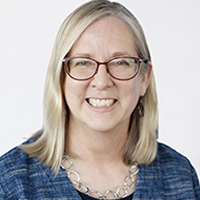Update: CPA licensure discussion evolves
October 10, 2024 | Linda Wedul, CAE

In 2023, MNCPA efforts launched a national discussion when legislation was introduced to
broaden pathways to CPA licensure by adding an option to use 120 college credits plus two years of experience in addition to the current 150-college credit pathway. Since then, there continues to be a significant amount of activity
happening nationally related to CPA licensure.
In the past month, California’s Board of Accountancy approved moving forward with legislation to allow a bachelor’s degree plus two years of experience or a master’s degree with one year of experience. This is very similar to our legislation with a slightly different approach. California’s approval to move forward is significant.
In addition to this change, California also proposes automatic mobility. Automatic mobility recognizes CPA certificates issued by another state as long as the licensee is in good standing. A CPA practicing under automatic mobility is subject to investigations and disciplinary procedures of the BOA in the state in which they are practicing.
More than one-third of states are in various stages of drafting legislation to modify education and experience requirements for licensure, allow automatic mobility or both.
After a national study, the AICPA and NASBA have shifted their position and shared a
licensure framework that is now open for public comment.
The framework adds a pathway using 120 college credit hours with one year of enhanced experience plus one year of traditional experience. The AICPA/NASBA framework is a shift, but there are significant differences between it, the MNCPA’s legislation and California’s model, which is similar to Minnesota.
Additionally,
new language for the Uniform Accountancy Act (UAA), which is a model act for boards of accountancy, has also been released. The UAA is model language, not a standard. BOAs are not required to adopt the language. The proposed updates address the addition of a new pathway using 120 college credits plus enhanced experience and mobility. It does not include automatic mobility, which is currently allowed in five states. It does call for a national licensee database to facilitate identifying CPAs who don’t meet substantial equivalency requirements in order to practice under mobility.
NASBA and the AICPA both hold member meetings in October where the framework and UAA proposals will be discussed. The MNCPA plans to comment on both the proposed framework and UAA language after the meetings. The comment period for the framework closes Dec. 6 and the comment period for the UAA changes closes Dec. 30.
We will update members and share insights for your consideration as the profession moves to align licensure requirements with an evolving environment. Thank you for your membership and coming together through the MNCPA to elevate the profession’s impact.
Topics: Staffing, Professional Certification, Recruitment & Retention, Education
Linda Wedul, CAE

Linda Wedul is president and CEO of the MNCPA. She’s usually spotted at MNCPA events, introducing herself to members with a warm smile and memorable laugh. Mixed among the Footnotes, accounting journals, leadership books and three monitors in her office, you’d be surprised to see a dog kennel. Her unpaid job is volunteering as a foster family for service dogs in training through Can-Do-Canines. She and her husband have two adult children and live in Farmington. Linda can be reached at 952-885-5516 or lwedul@mncpa.org.
Blog Posts by this author